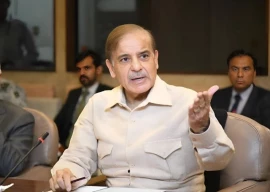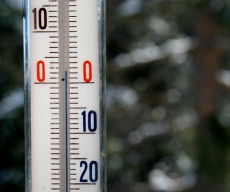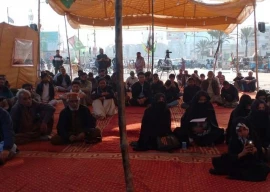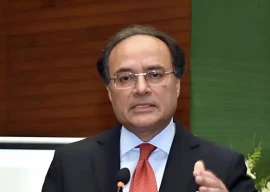
The technocrat-led economic management team appeared to be losing ground to aristocratic parliamentarians from rural constituencies who, on Friday, stepped up their campaign against taxes on agricultural inputs by meeting with President Asif Ali Zardari.
Finance ministry sources told The Express Tribune that attempts by the country’s economic managers to avert the pressure to withdraw their proposal to levy a 17% sales tax on fertilisers, pesticides and tractors may not last long as the “charged feudals” lobby the president against the finance minister’s fiscal reform plans.
Finance Minister Abdul Hafeez Shaikh, meanwhile is reported to have firmly stood by his position against any move to withdraw the tax.
“The primary focus of the meeting was the price stability of urea”, said Finance Secretary Dr Waqar Masood in his brief comment about the meeting’s outcome.
Sources said the government may eventually ask the Finance Ministry to find a middle ground, as it did in case of textile sector when it was forced to reduce the sales tax rate from 17% to 5% after intense pressure from the textile lobby.
The sales tax on agricultural inputs is not a new tax, but rather a removal of exemptions that had previously been granted to the sector. The government removed those exemptions on March15. Agriculturalists have been protesting about what they claim are about abnormal increase in prices after the imposition of the sales tax.
“We have asked the government not to levy an additional tax instead improve collection from agriculture income tax,” said Syed Ghulam Mustafa Shah – a rural aristocrat from Nawabshah, Sindh. He claimed that he had halved his farm’s consumption of urea since the imposition of the tax.
Prime Minister Yousaf Raza Gilani has constituted a committee to investigate the reasons for the increase in the prices of agricultural inputs which met on Thursday.
A government analysis of the price hikes shows that the effects of the sales tax imposition are being grossly exaggerated by the agriculture lobby. A 50-kilogram bag of urea costs Rs1,600 today, compared to Rs1,000 before the tax. Yet, of the Rs600 increase in prices, only Rs115 (or about 19% of the rise) can be attributed to the tax. The remaining 81% of the increase came as a result of the cuts in gas supplies to fertiliser manufacturers, which reduced production, creating a shortage which then led to a price increase.
The committee will finalise its recommendations and submit them to the prime minister before the budget is voted on so that a final decision to settle the ongoing tussle can be resolved through legislation.
In his speech to the National Assembly on Friday, the finance minister was blunt about need to raise revenues, and spoke out against the pressure from lobbying groups. “If Pakistan wants self reliance and access to municipal services then the government has to generate revenues by brining those sectors into the net which are exempted so far,” he said.
He vowed that the government would extract taxes from “those who have usurped the country’s resources,” adding, the government has accepted the challenge of expanding the tax base.
Restaurant tax
The government on Friday also decided to restaurants in Islamabad and Rawalpindi more effectively under the sales tax net. The Federal Board of Revenue initiated action against restaurants that have been charging sales tax from customers but not depositing the proceeds into the national exchequer.
As a first step it imposed fine on the Peacock Restaurant on Motorway (M-II) at Kalar Kaha. The restaurant management has been charged Rs38 million in tax liabilities by the Regional Tax Office Rawalpindi.
Published in The Express Tribune, June 18th, 2011.
1735374867-0/Untitled-(6)1735374867-0-405x300.webp)
1735372359-0/Untitled-(5)1735372359-0-165x106.webp)
1735368609-0/Untitled-(4)1735368609-0-165x106.webp)
1735365305-0/Untitled-(3)1735365305-0-165x106.webp)
1735363887-0/Untitled-(2)1735363887-0-165x106.webp)


1735368727-0/Untitled-design-(71)1735368727-0-270x192.webp)



1735283394-0/sidra--(9)1735283394-0-270x192.webp)



1720030784-0/Smog-free-Lahore-(14)1720030784-0-270x192.webp)
1733421998-0/New-Project-(1)1733421998-0-270x192.webp)






COMMENTS (3)
Comments are moderated and generally will be posted if they are on-topic and not abusive.
For more information, please see our Comments FAQ